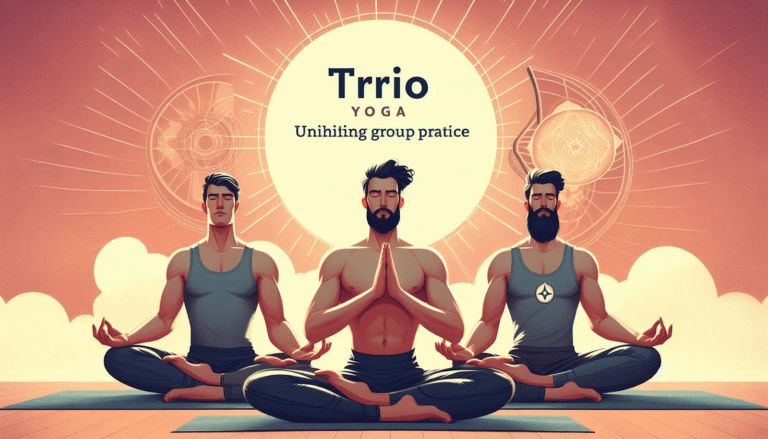Migraines Facebook Chat

Migraine Facebook Chat
Transcript Highlights
Dr. Cynthia Armand, MD
Dr. Dawn Buse, PhD
Dr. Noah Rosen, MD
2017
Welcome! It’s chat time! Thank you for joining us today for a discussion on “Therapies & Inspiration to Live Your Best Life with Migraines”. This Facebook chat will be hosted by Dawn Buse, PhD, Cynthia Armand, MD, and Noah Rosen, MD, and will cover topics such as:
– Strategies for migraine prevention, including identifying & avoiding triggers
– Tactics for getting through a migraine attack or cycle of migraine when it occurs
– Treatment options
– Reducing the daily burden of migraines (work, school, leisure time)
– Minimizing the impact of migraine on your family and loved ones
PainPathways Magazine:
Dawn C. Buse, PhD, is an associate professor, Department of Neurology of Albert Einstein College of Medicine and assistant professor, Clinical Health Psychology Doctoral Program of Ferkauf Graduate School of Psychology. She is also the Director of Behavioral Medicine at the Montefiore Headache Center, a fellow of the American Headache Society (AHS), conducts research on migraine, pain and stress and has coauthored more than 100 publications and 363 scientific abstracts. She has won five US and international research awards and two service awards.
Dr. Buse uses bio behavioral techniques, which include cognitive behavioral therapy, guided visual imagery, biofeedback and mindfulness training. Her FREE, guided visual imagery, relaxation exercises and article abstracts are available at www.dawnbuse.com.
Cynthia E. Armand, MD, headache specialist and clinical neurologist at Montefiore Headache Center, earned her BA from Wesleyan University and MD from the University of Connecticut. She completed neurology residency at Albert Einstein College of Medicine/Montefiore Medical Center and continued her training as a fellow in headache medicine at Montefiore Headache Center. Dr. Armand is an avid lover of neurology and health news with a strong interest in patient education, as well as social media as a valuable means of patient empowerment and knowledge.
Noah L. Rosen, MD, is the program director of neurology and the director of The Headache Center at Hofstra Northwell Health. He is board certified in Neurology, Psychiatry, Pain Management and Headache Medicine. Dr. Rosen completed his MD at Georgetown University School of Medicine, and continued his training as a resident at New York University School of Medicine and fellowships at the Thomas Jefferson University Hospitals & Medical College.
Now, please join us in welcoming Drs. Armand, Buse Rosen.
April Ruffin-Adams: Are there good medications for migraines? I’m currently using over the counter medicine.
Dr. Buse: Since we have had a few questions about medications for migraine, I wanted to give a quick overview.
Medication approaches can be acute, meaning that they are intended to be used when pain occurs, and preventive, which are medications that are taken on a daily basis or given through some other mode in order to prevent attacks. Acute migraine medications can be over the counter or prescription and include general pain relieving medications such as nonsteroidal anti-inflammatory medications (NSAIDs) such as ibuprofen, pain relievers, such as acetaminophen, and drugs marketed specifically for migraine such as the combination of acetaminophen, aspirin and caffeine. There are also migraine-specific prescription medications called triptans. These medications work by constricting blood vessels and blocking pain pathways in the brain. Ergots and dihydroergotamine (an ergot derivative) are also used.
Dr. Buse: Many people with migraine use a combination of medications, and may use some in the case of more mild headaches and others in the case of more severe headaches. For example, some people may also take anti-nausea medications in addition to pain reliving medications for acute therapy because nausea is common with migraine attacks. Some people will use opioid or narcotic medications for pain relief; however, opioids can be very sedating and also carry the risk of dependence are are not recommended for migraine management.
Dr. Buse: Unfortunately, many medications can have side effects. If taken too often or for too long, some medications like NSAIDs can lead to ulcers and gastrointestinal bleeding and caffeine and other treatments can lead to medication-overuse headache or rebound headache. Side effects of triptans can include nausea, dizziness, drowsiness, chest tightness and muscle weakness. They are not recommended for use with people with cardiovascular risks or history such as heart attack or stroke. Opioids and barbiturates have been shown to be associated with an increased risk of progression from episodic to chronic migraine and are also associated with more severe and frequent headache, greater risk of depression and medication dependence, less likelihood of being employed full time, and more likelihood of being occupationally disabled.
Monica B. Are there any new medications that have fewer side effects than the older medications?
Dr. Armand: Thank you for your question Monica. There are various classes of medications used for migraine therapy. However, now, we are currently awaiting a new class of medications: anti CGRP agents. They are currently in the final stages of clinical trials. Below is a great link to an article written about them as presented at the latest American Headache Society Meeting.
CGRP DRUGS OFFER MORE FREEDOM TO PEOPLE WITH MIGRAINE – FOR $8500
Dr. Rosen: While there are several new medications on the horizon, there are also a number of non medication options which are also being developed. There have been several options already on the market including the Cefaly transcutaneous electrical stimulation patch and the eNeura transcranial magnetic stimulation device for migraine, as well as a peripheral vagal nerve stimulation device for cluster headaches. Other electrical and other stimulation devices are still being developed. These provide benefit with a lower side effect profile than many of the medications already on market.
Dr. Buse: People with more frequent migraines may use preventive medications. While there are no preventive medications that have been developed specifically for migraine YET, there are several types of medications which can help reduce the frequency of migraine attacks. These fall into the following classes: cardiovascular, anti-seizure, antidepressants, and neuromodulators. In addition, onabotulinumtoxinA (Botox) has been FDA approved for treating chronic migraine. Again, most of these treatments have side effects and/or may not be appropriate for some people based on medical history or age. Most are not recommended for use by women who are pregnant or nursing. Some of the antidepressant medications can cause dry mouth, constipation, weight gain and other side effects. Some of the anti-seizure drugs may also cause side effects. Valproate sodium may cause nausea, tremor, weight gain, hair loss and dizziness. Topiramate may cause diarrhea, nausea, weight loss, memory difficulties and concentration problems
Dr. Rosen: Just within this month the American Headache Society met in Boston for the 59th Annual Scientific Meeting. There were many fantastic talks given (including by Dr. Dawn Buse!) and a lot of information about new medications being developed. The Calcitonin Gene Related Peptide (or CGRP) antibodies are a new class of preventive medications that have been wrapping up the final phase of studies before submission to the FDA. These medications have a very tolerable side effect profile, good efficacy and will represent the first migraine specific preventive medications. In the field, we hope that these will do for migraine prevention what the triptans did for acute therapy. There is no doubt that these molecules have also opened the door to much new research within the field and will lead to even further discoveries.
Anne Stiller: Good luck with this one; fibro; got migraines back with that car accident; however most of them are from eating; sugar gives me migraines, the normal crap like nitrates, etc. and the biggest onions or onion powder which is in almost everything; any ideas?
Dr. Buse: Hi Anne, you mentioned several foods triggers for migraine attacks, which can be common for some people. It sounds like you have identified a couple specific triggers including sugar, nitrates and onions or onion powder. It is probably hard to avoid these in some prepared foods or when you go to a restaurant. I imagine it is easier to have control if you cook for yourself at home. Many restaurants will give you a list of ingredients if you ask and avoid putting ingredients into dishes if you specifically clarify that you have a MEDICAL REASON to avoid them. It’s great that you have identified these triggers now so that you can try to avoid them as much as possible. Best wishes.
Dr. Rosen: Food triggers and migraines can be significant but confusing. There are a few well evidenced dietary triggers including alcohol, caffeine (particularly withdrawal) and Mono Sodium Glutamate (MSG) as well as fasting and dehydration (one of the biggest issues in my opinion.) There may also be some other very individual triggers: I have 3 patients I care for that swear garlic is a trigger.) It is worth keeping an accurate record or diary for a period of time and to see if there is anything that clearly correlates. In general, I tell my patients that there is no great evidence for any specific diet, but any diet may be helpful. It makes you be more mindful about what you eat, more focused on ingredients and preservatives and avoid too much processed foods.
Karen Castro: Hi I’ve been diagnosed with myofascial syndrome on my left side of my face. I’ve tried muscle relaxer and they don’t work. The dentist recommends massage. What else can I do?
Dr. Armand: Hi Karen. There are many therapies being used for myofascial pain syndrome. Oral medications include many of the same used for treatment of fibromyalgia—such as antidepressants. For additional therapies, trigger point injections ( injection of a local numbing medication such as lidocaine to tender spots) can be used- this depends on where exactly the pain is. You may speak to your doctor about these approaches in addition to massage therapy.
Dr. Buse: Karen asked why there is so much concern and advice against using opioids for migraine. That’s a great question and it has certainly been in the national spotlight recently. The major scientific headache and migraine associations have issued position statements against using opioids for managing migraine for several reasons.
Opioid medications are not specific for migraine so they do not stop an attack, they just mask the pain temporarily. While this can be a great relief for a time, they also do not treat the associated symptoms such as sensitivity to bright light, loud noises, odors, nausea or other symptoms. They can make it difficult to function and can cause impairment making it dangerous to drive for example. And they carry the risk of being potentially habit forming. And unfortunately their use in migraine has been associated with a worsening of the condition, leading to more frequent migraine attacks. The good news is that there are migraine specific medications available which may be much more effective. Treatment regimens may include acute (as needed), preventive (daily or on a regular basis) and non-pharmacologic (e.g., biofeedback or a neurostimulator).
Here is an article that gives a little more information:
https://americanmigrainefoundation.org/…/opioid-narcotics-…/
Opioid Narcotics and Headache – American Migraine Foundation
April Ruffin-Adams: Is there a way to stop my headaches before the auras begin?
Dr. Buse: April asked about aura. Migraine attacks can include four stages: the prodrome, the aura, the headache (pain and accompanying symptoms) and the postdrome. About 1 in 5 people with migraine experience aura before an attack, although they may only have auras with attacks some of the time. The aura phase is defined as the experience of “focal neurologic features”. These may be visual, such as seeing flickering lights, spots or lines, or losing a portion of the visual field, but other senses can be involved as well such as a sensory aura where a person may experience numbness or feelings of “pins and needles”. You could could even experience smells or tastes that you are not really experiencing. During this period you may also experience confusion, dizziness or weakness. The aura may last for 5-60 minutes just before the headache begins. Sometimes people can have aura on it’s own (without the migraine headache). It can be very disturbing and make it difficult to function (for example if you are driving and can not see or feel your hands!) People also may worry that something dangerous is going on medically, but rest assured that it is not dangerous and it will pass.
Here is more good info about auras and migraines…
Basia Wojtkowska: regarding triptans and ergots – can only take x number / week. What about if attack / flare last 4+ days, with vomiting?
Dr. Armand: Hello Basia. If your headache lasts for 4+ days, it is imperative to contact your doctor because there are alternative therapies that can be given as short 3-8 day courses to help break a headache cycle. Some examples: steroids can be utilized, dhe nasal sprays, or even anti-nausea medications with anti-headache properties. Always communicate with your doctor to see what may work for you.
PainPathways Magazine: Have you read our Winter 2017 cover story? Great read about how Scandal’s Bellamy Young manages life with migraines!
https://web.archive.org/web/20201129154701if_/https://www.painpathways.org/pr-bellamy-young-migraines/embed/#?secret=vsY2by8KWs
Bellamy Young on Migraines
Sharron Murray: What suggestions do you have for living your best life with migraine, including helpful hints for sleep and breaking pain, sleep, stress cycle. I see numerous comments about these topics in Facebook groups.
Dr. Buse: Thank you Sharon for this terrific question. Migraine is a neurological disease with a genetic predisposition. While 36-40 million Americans live with migraine, less than half have been diagnosed and even less than that are being treated.
In order to live your best life with migraine, be sure to work with a healthcare professional to be diagnosed and receive the best, personalized treatment possible.
If you have severe headache that interferes with your ability to function and is associated with sensitivity to lights and sounds or nausea you may have migraine. Talk with your doctor to get diagnosed and treated. Organizations that can help locate a headache healthcare professional and provide more information include the American Headache Society, the American Migraine Foundation and the National Headache Foundation. For links to these and other organizations see: http://www.dawnbuse.com/resources/
If you feel that stress, anxiety or depression associated with your severe headache or migraine have become overwhelming please reach out for help. The American Psychological Association provides referrals and information about mental health wellness, stress management and living with a chronic illness. For links to these and other organizations see: http://www.dawnbuse.com/resources/
This is a very exciting time of new understandings and treatment options for migraine. The future is looking brighter than ever. If you or someone you love have migraine or think you might have migraine, speak with your doctor or a headache specialist.
We’re here to help!
Jerald Withajay: Why do some people on home OTC treatment take Benadryl along with Excedrin for an acute migraine? Benefits? Risks?
Dr. Armand: Hi Jerald. When individuals are seen in the ER for a migraine attack, the following medications are usually given: Benadryl, Reglan (anti-nausea w/ anti-headache properties), Toradol ( anti inflammatory). Benadryl is given because reglan can have the unpleasant side effect of producing extreme restlessness and bodily movements. This is how it is used. Benadryl on its own would not help a migraine, unless falling asleep can lead to improvement of pain.
Paul Edison-Lahm: My migraines frequently start with eye pain on waking. Is there any research on the relationship between sleep and migraines that might point me in the right direction?
Dr. Rosen: Sleep can play an important role in diagnosing specific headache types. For example, Hypnic headache or “alarm clock headache” is one that tends to occur to people in their 60s and 70s that have a history of migraine and tends to wake them up at 3 or 4 in the morning with a moderate pain. Migraines themselves may be exacerbated overnight by snoring and sleep apnea. In fact, those are risk factors for developing migraines more often than not! Additionally, early morning headaches may be caused by medication overuse and withdrawal that occurs overnight. Finally, it is important to note the difference between a headache that you wake up with, and one that wakes you up. Waking at night due to a bad headache may be a sign of a more concerning syndrome and should be evaluated by a health care provider.
Here is an article on 5 tips from our Chat Expert, Dr. Cynthia Armand on how to make the MOST of your first visit to the headache doctor.
Do you feel stigmatized because of your condition? Read this interesting article that features our chat expert, Noah Rosen, MD
MIGRAINE SUFFERERS STIGMATIZED BECAUSE OF THEIR CONDITION: STUDY
Mara Sataloff: can you recommend any relaxation apps or the new cognitive behavioral apps to help with the depression associated with the chronic pain of migraine and its affects on daily life.
Dr. Buse: Hi Mara, I’m so glad that you asked about this. Living with migraine can be difficult physically and emotionally. Depression, anxiety and stress have a bidirectional relationship with migraine. They can be the result of migraine and they can also trigger attacks or make life with migraine even harder.
Scientifically proven non-pharmacologic treatments for migraine management include strategies to manage stress and improve coping (including biofeedback, relaxation training, and cognitive-behavioral therapy), and trigger awareness and management.
Someone who experiences migraine has a sensitized nervous system. A migraine attack can happen when the combination of biological and environmental factors (triggers) exceed a certain biological threshold. This threshold can change based on various factors. Triggers can include stress, relaxation after a stressful period (which surprises many people), and other things. Practicing relaxation techniques such as meditation, guided visual imagery, yoga, or other ways to quiet the mind can help balance the nervous system.
With technology today we have many ways to access relaxation exercises and training. I have a website where you can listen to or download meditations and relaxation exercises including guided visual imagery (http://www.dawnbuse.com/relaxation/) and I have also listed links to some of my other favorite sites there including:
1. UCLA Mindful Awareness Research Center (in English and Spanish)
2. UC San Diego Health
3. Tara Brach, Ph.D. guided meditations
There are also many excellent relaxation and meditation downloads available free on iTunes and in the Google play store.
In addition, there are many excellent free and low cost apps and programs for learning and practicing relaxation such as Headspace and Calm.com.
And if anyone is in the New York City area, we are currently running a study examining the benefits of MIndfulness Based Cognitive Therapy where participants get 8 free sessions.
See: http://elizabethsenglab.wixsite.com/sen…/bronx-mbct-migraine
Of course, if stress, depression, anger or anxiety seem unmanageable it is wise to speak to a mental health professional. Talk with your doctor, or there are links to find a psychologist or provider or biofeedback here: http://www.dawnbuse.com/resources/.
Jerald Withajay: Any proven OTC supplements that help prevent or reduce severity of common migraines? Feverfew? Magnesium, Vit B supplements? etc?
Dr. Armand: Hi Jerald. There are various OTC supplements used for migraine prevention- most commonly recommended-Riboflavin (vitamin B2- 200mg twice daily), Magnesium ( 400-500mg daily), and CoenzymeQ10 ( 150mg daily). Others include feverfew and butterbur. Before starting ANY supplement, please speak with your doctor. Butterbur has been known to be harmful to the liver.
Vernetta Wood-Dunbar: I’m experiencing more and more sensitivity to sunlight and florescent lights to the point where I have to wear sunglasses constantly. Is there anything possible (technique or meds) that can prevent or ease this?
Dr. Armand: Hi Vernetta. Photophobia is most certainly a part of your migraine symptoms. In general, treating your migraines with a preventive should help with this. As your migraines improve, we should expect your photophobia to improve as well. For added comfort, there is a wonderful company called Theraspecs that provides sunglasses or even contact lenses that are tinted to specifically guard against this. https://www.theraspecs.com
PainPathways Magazine: Interesting article from chat expert, Dr. Buse. Can you relate?
Chronic Migraines Affect the Whole Family
Paul Edison-Lahm: Do we know why the pain starts in the eye? I’ve been tested several times and don’t have apnea.
Dr. Rosen: Pain in the eye or behind the eye doesn’t always mean that the problem is in the eye itself. There are conditions that can affect the eye directly (like uveitis or glaucoma) or indirectly such as due to increased intracranial pressure or due to inflammation of the temporal artery which feeds the eye. However, most pain affecting the eye is referred pain or pain that is generated elsewhere within the brain and simply feels that it is local to the eye but can manifest elsewhere in the head as well. Many headache subtypes such as the trigeminal autonomic cephalgias including cluster headache often present as sharp stabbing pains around the eye. Cluster headaches themselves tend to occur more frequently within the first several hours of falling asleep as opposed to in the morning.
PainPathways Magazine: Everyone, our time is unfortunately up. We appreciate all of your thoughtful questions and our experts’ informative responses. Check back with us for our next Facebook chat!
To order a subscription to PainPathways, visit us online at https://www.painpathways.org/…/1-year-subscription-4-issues/
PainPathways Magazine: Hi everyone! This is Amy North, editor of PainPathways Magazine. On behalf of the magazine, we’d like to thank our expert and all those who participated in tonight’s chat! We are excited to be offering this great forum for information and inspiration. We’ll post transcripts of the chat to our website soon. Have a good night everyone!
Professional and individual subscriptions to PainPathways Magazine are available at www.PainPathways Magazine.org.
All information provided is for educational purposes only. Neither PainPathways Magazine nor their Facebook Chat hosts are responsible for a medical diagnosis. Individuals should seek a physician for evaluation and a personalized treatment plan.
PainPathways Magazine
PainPathways is the first, only and ultimate pain magazine. First published in spring 2008, PainPathways is the culmination of the vision of Richard L. Rauck, MD, to provide a shared resource for people living with and caring for others in pain. This quarterly resource not only provides in-depth information on current treatments, therapies and research studies but also connects people who live with pain, both personally and professionally.
View All By PainPathways






